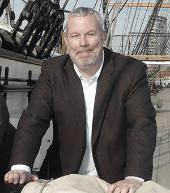The PhD programme in the School has the following three milestones:
- Registration
- Progression
- Examination
Registration
Applicants who satisfy the entry requirements are encouraged to complete the online 'Expression of Interest' form. If the initial application is satisfactory, a conditional offer will be issued and a potential supervisor will be allocated who will provide guidance on the research proposal development.
An interview will take place when the final draft of the research proposal is submitted for approval. The granting of the interview does not imply that the applicant will necessarily be admitted to a research degree programme.
Subject to the satisfactory interview and that the Faculty Research Committee (FRC) is satisfied that: a) the research proposal is sound and has the potential to deliver a postgraduate research award; and b) the proposal is appropriately resourced, the applicant will be admitted to the research degree programme.
Progression
All students who wish to study for a PhD are required to complete a progression within 18 months (for full-time students) or 36 months (for part-time students).
The student at the progression needs to produce a paper which summarises his/her achievements on the research programme and outlines future research plans (including research methods), and conduct an oral presentation of the paper at a workshop set up for the progression purpose.
An independent assessor, nominated by the FRC, reviews the paper produced, together with supervisors’ assessment, the student’s presentation and other evidence. On this basis, the assessor will provide evaluative comments and recommendations to the FRC. Upon considering all aspects, the FRC may recommend that the student a) proceed as proposed; b) proceed subject to changes or amendments being made, addressing the concerns raised; c) be placed 'at risk'; or d) change the research degree originally sought.
Examination
Towards the end of the research programme, the student will be examined on the basis of a thesis and an oral examination (viva voce). Normally two qualified examiners are appointed, at least one of whom is external to the institution. If the student is a member of staff at the University, then a second external examiner will be appointed.
Following the oral examination, the examiners will make recommendations to the University’s Research Award Sub-Committee (RASC) whether the research degree sought can be awarded.
PhD Supervisors - History
Dr Simon Constantine
''I teach across a broad range of undergraduate modules at Wolverhampton and am currently the course leader for The Great War, Migrant Stories - Migrant Journeys, From Reich to Republic (Germany 1871-1919) and From Weimar to Auschwitz (Germany 1919-1945).'' Read more here.

Dr Howard Fuller
A Reader in War Studies at the University of Wolverhampton, Dr Howard Fuller completed his BA in History at the Ohio State University, and his MA and then PhD in War Studies at King’s College, London.
Since 2001, Dr. Fuller has lectured in America, Britain, Europe, and the Baltic States on aspects of maritime and naval power from the early 19th to 20th centuries, and has taught additional history courses online for University of Maryland University College. In 2002-3 he was the Rear Admiral John D. Hayes Fellow in U.S. Naval History through the U.S. Naval Historical Center (now Naval History and Heritage Command) in Washington, D.C.; he has also been a West Point Fellow in Military History, Caird Research Fellow, and is a Fellow of the Royal Historical Society.
Dr. Fuller is a frequent contributor to conferences and journals on both sides of the Atlantic, Associate Editor for the 'International Journal of Naval History', and a Managing Editor for the 'British Journal of Military History'. His first book, 'Clad in Iron: The American Civil War and the Challenge of British Naval Power' (2007, Greenwood Press, reprinted in 2010 by Naval Institute Press), was runner-up for the 2008 John Lyman Book Award in US Naval History; followed by the critically-acclaimed 'Empire, Technology and Seapower: Royal Navy Crisis in the Age of Palmerston' (Routledge, 2013); and most recently, 'Turret vs. Broadside: An Anatomy of British Naval Prestige, Revolution and Disaster, 1860-1870' (2020), for Helion & Company, as part of its Wolverhampton Military Studies Series. Read more here.

Professor Laura Ugolini
Laura Ugolini is a Professor of History, based at Wolverhampton City Campus. Her research interests are in British gender history, particularly 19th and early 20th century masculinities and male identities. In 2007 she published Men and Menswear: Sartorial Consumption in Britain, 1880-1939, while her book on Civvies: Middle-Class Men on the English Home Front, 1914-1918 was published in 2013. Her most recent book, on Fathers and Sons in the English Middle Class, c. 1870-1920, was published in 2021. She is currently researching middle-class families and mental illness in England, between c. 1880 and 1920. Laura Ugolini directs the University of Wolverhampton’s Centre for the History of Retailing and Distribution (CHORD).
Read more here.

Dr George Gosling
The focus of his teaching and research is modern British history, primarily using the themes of medicine, charity and welfare to explore wider questions of gender, citizenship and consumerism.
His first book, ‘Payment and Philanthropy in British Healthcare, 1918-48’ (MUP 2017), explored the complex meanings of payment in the pre-NHS hospital. It argues that, when patient payments became commonplace after the First World War, they neither empowered consumers as hoped nor crowded out the sick poor as feared, instead they found a surprisingly traditional accommodation with the long-established class-bound principles of philanthropy.
He is currently working on two books. One is a history of British charity-run shops since the late eighteenth century, drawing attention to vast number of historic retail operations with aims other than fundraising. The other is a collection co-edited with Dr Alix Green and Dr Grace Millar on 'Retail and Community: Business, Charity and Global Britain in the Long Twentieth Century', with each chapter exploring a case study in the impact of family, community and social relations on retail and shopkeeping in the era of the rise of modern retail and shopping. Read more here.

Dr Spencer Jones
Dr. Spencer Jones is an award-winning historian and author. He is Senior Lecturer in Armed Forces and War Studies at the University of Wolverhampton and serves as the Regimental Historian for the Royal Regiment of Artillery. His key works include From Boer War to World War: Tactical Reform of the British Army 1902-1914 and Stemming the Tide: Officers and Leadership in the British Expeditionary Force 1914, which was runner-up for the Templer Medal in 2014. He has published several critically acclaimed books on the British Army in the First World War including Courage without Glory: The British Army on the Western Front 1915 and At All Costs: The British Army on the Western Front 1916. His most recent volume is The Darkest Year: The British Army on the Western Front 1917.
Spencer is the co-host of the popular First World War podcast Not So Quiet on the Western Front, and has appeared on a number of television programmes including The One Show, Who Do You Think You Are and The Quizeum as well as the major Channel 4 documentary Britain's Forgotten Army and the Yesterday series The Great War in Numbers. In 2018 he was made a Haig Fellow by the Douglas Haig Fellowship in recognition of his contribution to the field of First World War studies. Read more here.

Professor Keith Gildart
Keith Gildart is a Professor of Labour and Social History. After working as an underground coal miner for seven years he studied at the universities of Manchester and York.
His research interests are focused on nineteenth/twentieth century British history, labour movements, working class politics, youth culture and popular music. Keith has published widely on British labour history, most notably a monograph on the North Wales Miners and numerous articles and edited collections on coal mining history.
He is an editor of the multi-volume 'Dictionary of Labour Biography', for which he has contributed entries on British Labour Members of Parliament and important trade union figures. His most recent books include 'Images of England through Popular Music: Class, Youth and Rock ‘n’ Roll, 1955-1976' (Palgrave, 2013) and the Dictionary of Labour Biography Vol. XV (Palgrave, 2019). He has just completed a monograph titled 'Keeping the Faith: A History of Northern Soul' (Manchester University Press, 2020) and is working on publication projects on the industrial and political culture of mining communities in post-war Britain. He has appeared on television documentaries for the BBC including Who Do You Think You Are?, commentated on news items on radio, and for the local and national press. Read more here.

Professor George Kassimeris
George Kassimeris has been researching and writing on terrorism and political violence for more than 20 years and has successfully built a reputation as the leading expert on Greek terrorism and one of the best recognised European scholars working in the field. His latest research monograph published by Hurst in the UK and Oxford University Press in the US is entitled Inside Greek Terrorism and draws on interviews with imprisoned terrorists and former militants from defunct Greek terrorist groups to offer valuable insights into the complex processes of involvement in and disengagement from terrorism.
Kassimeris’s research on terrorism has received funding from the Leverhulme Trust, the British Academy, the Nuffield Foundation, the European Union and the Smith Richardson Foundation. He has lectured widely on terrorism and political violence, including invited lectures and keynote speeches in Britain, the United States, Canada, France, Serbia, Spain, Greece and Turkey.
A political journalist before joining the academia, Kassimeris comments regularly for current security affairs for the BBC and other international media. His journalism has appeared in a wide range of publications including, the Wall Street Journal Europe, The Financial Times, The International Herald Tribune, The Independent, The Economist Intelligence Unit, The World Today, The South China Morning Post, and The Times Literary Supplement. Kassimeris tweets @GKassimeris and blogs for the Guardian, the New Statesman, the Independent, the Huff Post, the Times Higher, LSE EUROPP and the PSA. Read more here.
Professor John Buckley
John Buckley is Professor of Military History at the University of Wolverhampton. He teaches and publishes on twentieth-century military history and strategic studies, especially on air power and the final year of World War II.
His books and articles analyse maritime air power in the inter-war period and during World War II, most notably a study of RAF Coastal Command, and on various other aspects of air power including strategic bombing, British inter-war defence policy, and air power and total war. His works include RAF and Trade Defence 1919-1945: Constant Endeavour (1995), Air Power in the Age of Total War (1999), British Armour in the Normandy Campaign (2004) and the edited collection, The Normandy Campaign 1944: Sixty Years On (2006). With George Kassimeris, he is editor of The Ashgate Companion to Modern Warfare (2009).
His most recent work is Monty's Men: The British Army and the Liberation of Northwest Europe, 1944-5, which analyses the performance of the British Army during the final stage of World War II. Read more here.

Dr Eamonn O'Kane
Eamonn O’Kane is Reader in Conflict Studies at the University of Wolverhampton. He has published widely on the Northern Ireland conflict, peace process and comparative conflict resolution. He is the author of the books Britain, Ireland and Northern Ireland Since 1980 (Routledge 2007), Northern Ireland Since 1969 (with Paul Dixon, Pearson, 2011) and has just completed The Northern Ireland Peace Process: From armed conflict to Brexit (MUP, 2021). He regularly appears on national and local media discussing issues related to Northern Ireland politics. He is currently External Examiner at Ulster University and has previously acted as an External Examiner at The University of Huddersfield and Kingston University, London. He is Co-Convenor of the Political Studies Association’s Irish Politics Group.
Read more here.
Dr Jason Dymydiuk
Jason Dymydiuk is a Lecturer in Contemporary Conflicts and Warfare.
Professor Gary Sheffield
Gary Sheffield is an English academic and military historian. He publishes on the conduct of British Army operations in World War I, and contributes to print and broadcast media on the subject.


/prod01/wlvacuk/media/departments/digital-content-and-communications/images-18-19/iStock-163641275.jpg)
/prod01/wlvacuk/media/departments/digital-content-and-communications/images-2024/250630-SciFest-1-group-photo-resized-800x450.png)
/prod01/wlvacuk/media/departments/digital-content-and-communications/images-18-19/210818-Iza-and-Mattia-Resized.jpg)
/prod01/wlvacuk/media/departments/digital-content-and-communications/images/Maria-Serria-(teaser-image).jpg)
/prod01/wlvacuk/media/departments/digital-content-and-communications/images-2024/241014-Cyber4ME-Project-Resized.jpg)
/prod01/wlvacuk/media/departments/digital-content-and-communications/images-18-19/210705-bric_LAND_ATTIC_v2_resized.jpg)









